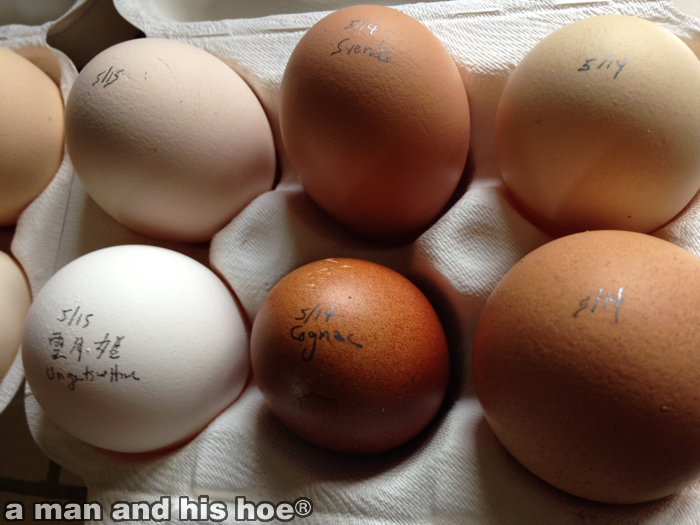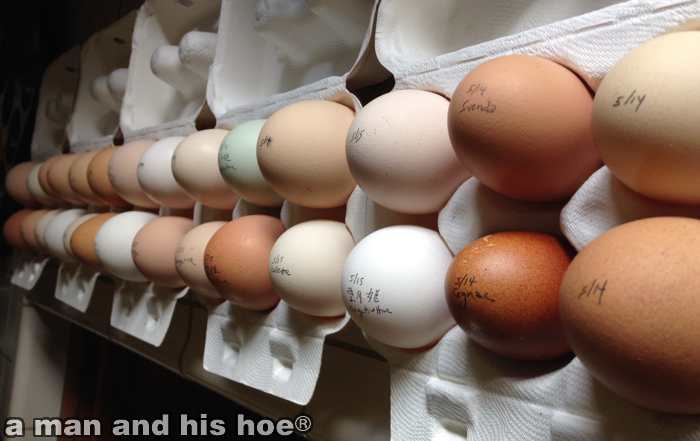Your cart is currently empty!
Month: May 2015
-
They Want It Green
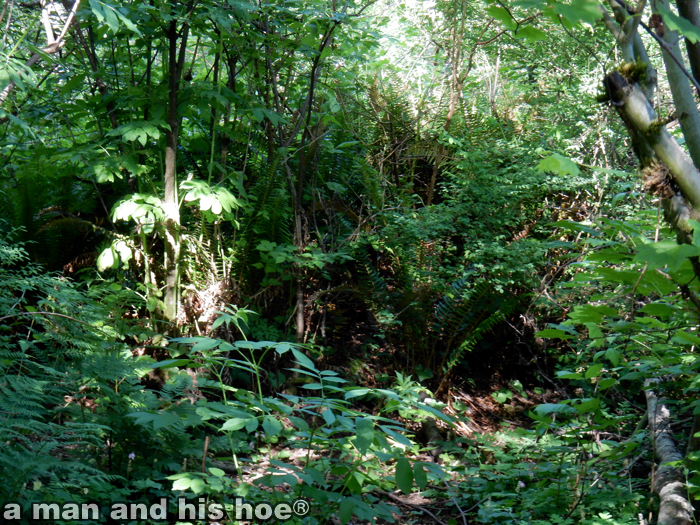
“Yeah, I want to go in there!” That is what flashes through a chicken’s mind when it sees thick brush. Chickens love forests. They love woods. They love tall grasses and thick brush. It’s not surprising, considering that they are descended from jungle fowl.
Why do chickens love wooded areas so much? Because they are full of food, and provide a fair amount of protection. Most hawks and eagles have a hard time navigating through dense brush. And if they sense a ground predator, the thick brush gives them many escape routes.
In every teaspoon of soil, provided it hasn’t been harmed by fungicides, pesticides, and fertilizers, are billions of bacteria and fungi, up to 25,000 species of fungi and 75,000 species of bacteria. There are some 10,425 different species of birds world wide. In every teaspoon of healthy soil there are many more species of bacteria and fungi than there are of birds throughout the entire world. Amazing when you think about it. All that diversity of life right below your toes.
This vast variety of bacteria and fungi attract a huge variety of larger organisms which feed on them. A chicken scratching through the forest floor finds an endless variety of little creatures to eat, far greater diversity than you will ever find in any restaurant in any city on earth. A chicken in the forest is enjoying a smorsgabord, the likes of which you will never enjoy. They get to savor more dishes in just a few hours of foraging in the woods, than you may eat in a lifetime. That’s why chickens love the woods.
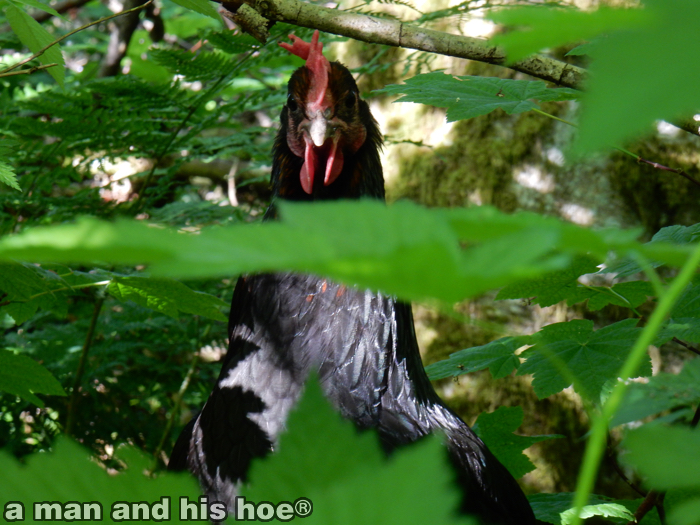
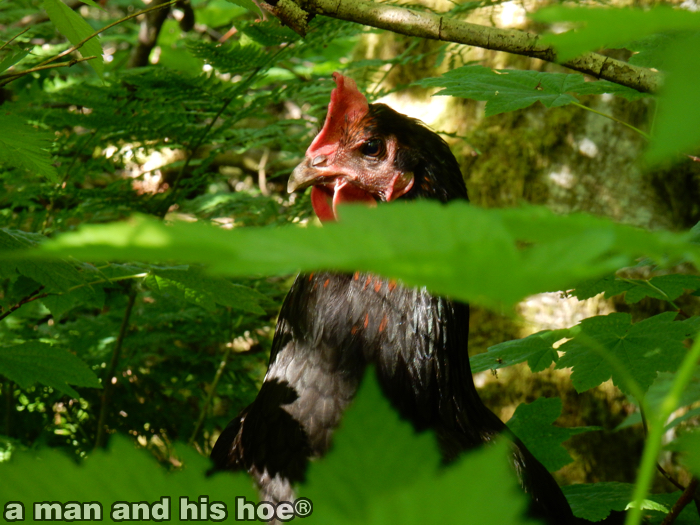
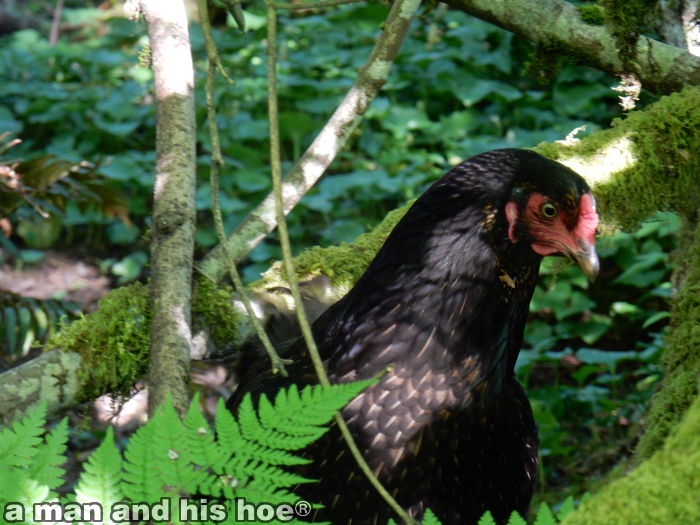
-
How Is Skunky Now?
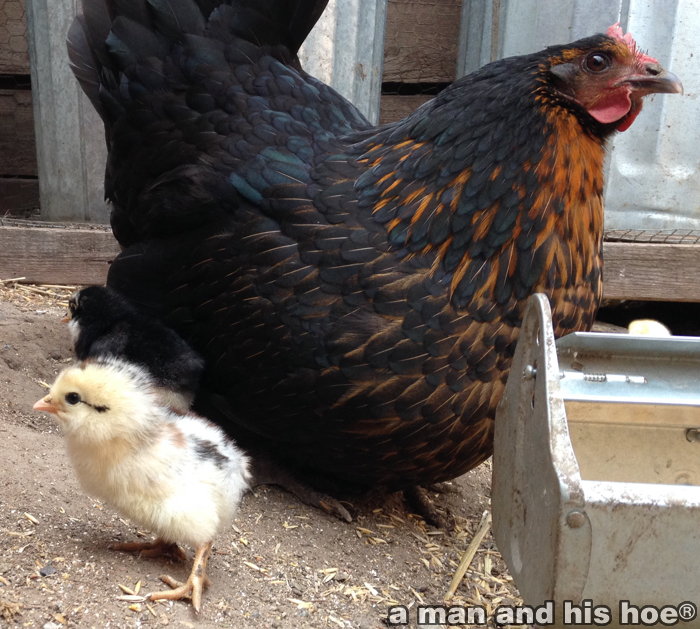
Remember Skunky? This is what she looked like with her mother on April 2, just a few days after she hatched. And below is what she looks like today, at nearly two months. She’s quite transformed. Gone are the prominent skunk like stripes on her face and back. She spends much of the day in the forest, running around with her brothers and sisters. Trying to photograph her is a challenge. Young chickens rarely sit still. By the time you’ve found them in the thick brush and focused your camera on them, they are gone. They’ve got too many things to do. Posing for a picture isn’t one of them.
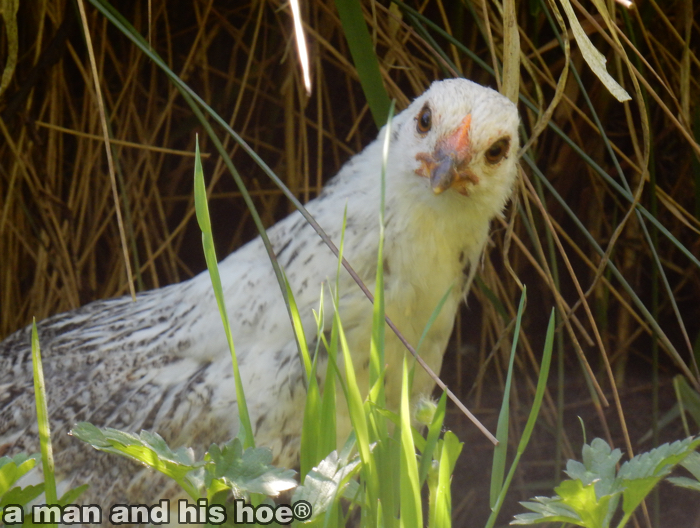
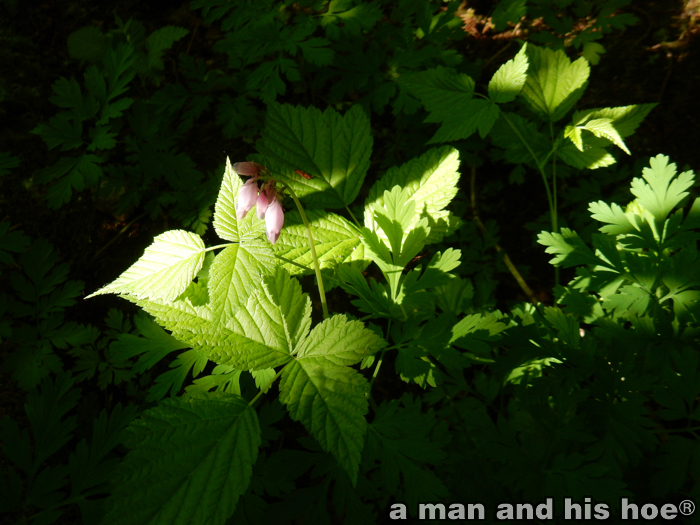
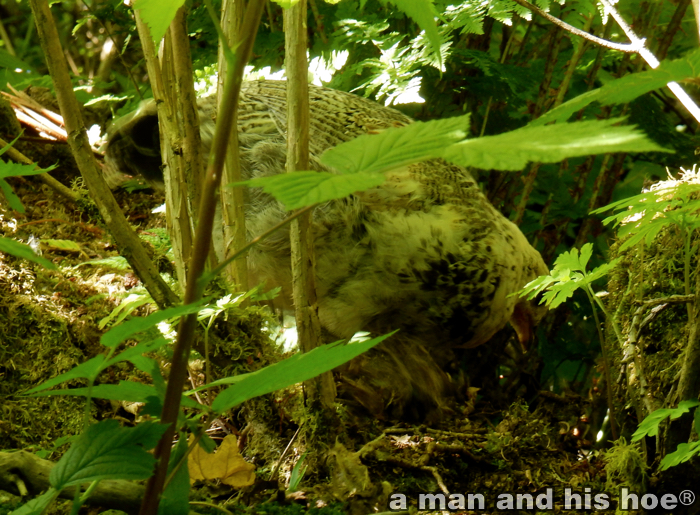
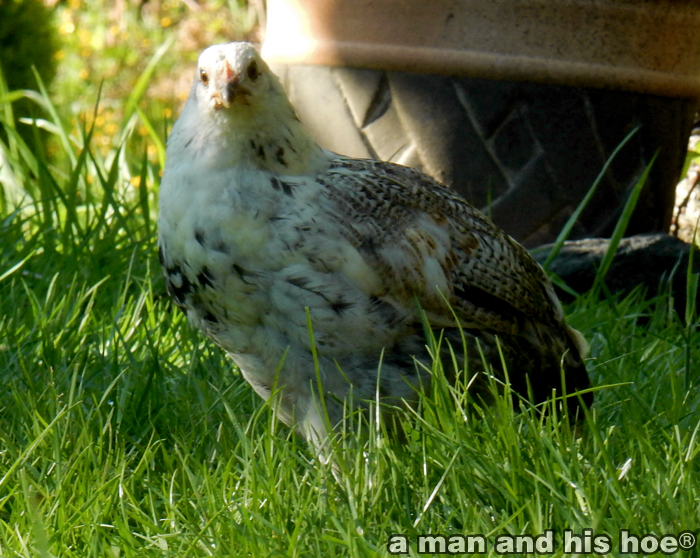
-
Compost Helpers
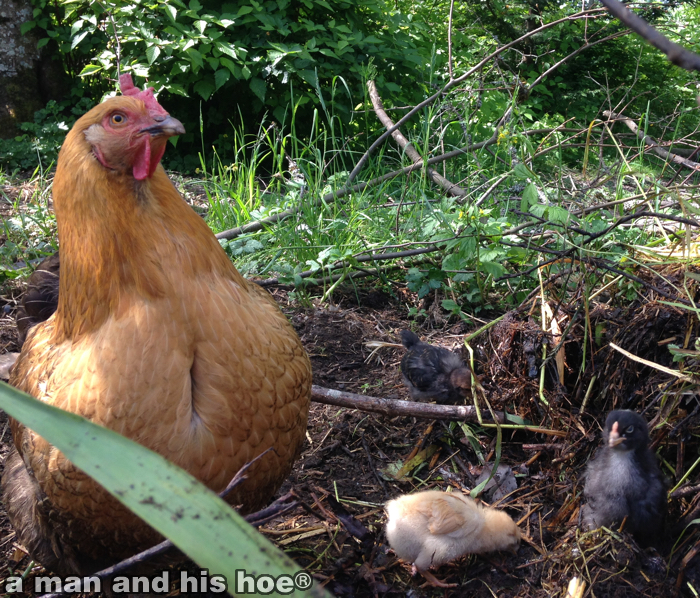
Gone for most of yesterday and all night, we returned this morning to find the compost bin was overheating. It was up to 150ºF (65.5ºC), and at temperatures above that, the beneficial organisms die off. Miasa-hime brought her chicks over to help when she saw I was turning over the compost pile. I’m pretty thorough when I do this, taking the pile apart and rebuilding it by putting the parts that were on the outside in the middle, and putting the hot parts on the outside, and fluffing it all up so that air gets into all parts of the pile. Plants are counting on me supplying them with billions and billions of aerobic bacteria and fungi when the compost is done.
It’s an opportunity for Miasa-hime and her chicks to find plenty of good things to eat. There are so many tiny creatures stirring about in the compost, the chicks have a feast. If they miss something, she’ll point it out to them.
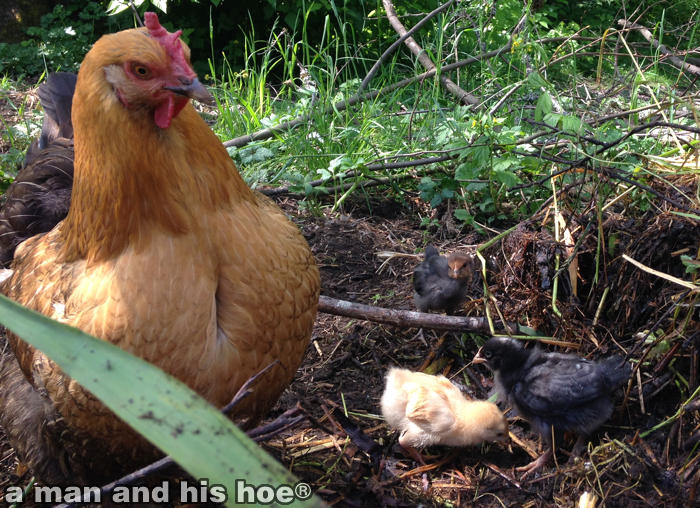
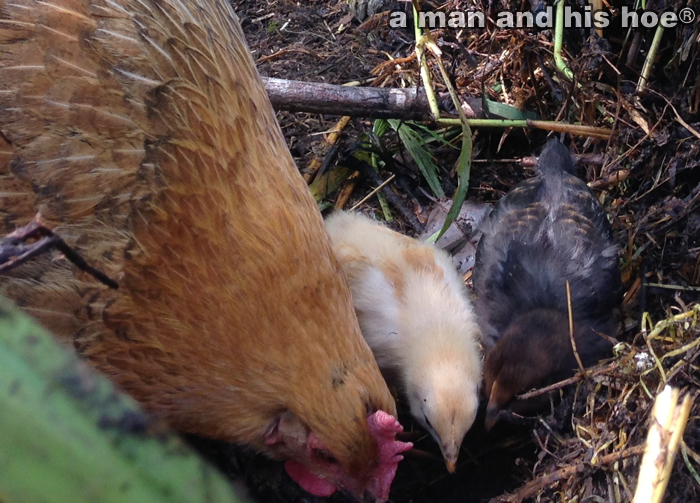
-
Phft … That’s All Live Is
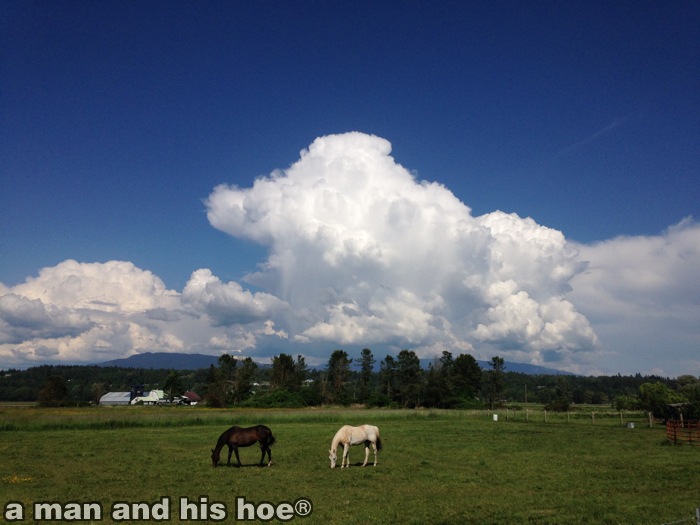
On the way home from an errand I had to stop to enjoy these clouds billowing up over the Cascade Mountains. Clouds are the ultimate performance artists. They create these massive works of art, and then, phft, they’re gone. They come and go so frequently, we don’t even think about it.
To the earth, we’re just a phft too. To an earth that is 4 billion years old, a person who lives a hundred years is as significant as something that lasts 90 seconds for someone who lives a hundred years. Who cares about something that flits around for just 90 seconds?
When you think about it that way, our lives come and go so quickly, in the grand scheme of things, they have no meaning. Each one of us is just a phft. And that’s a good thing. It’s liberating to know we don’t matter. We’re free to be happy and enjoy life. We don’t have to waste our time building a legacy, accumulating things that in the long run don’t mean a thing, trying to impress the others. We can live like butterflies. All that’s important is what we are doing minute by minute, enjoying all the wonderful phfts that pass our way. We’re as transitory as puffy clouds.

-
Eggs for Slough Food
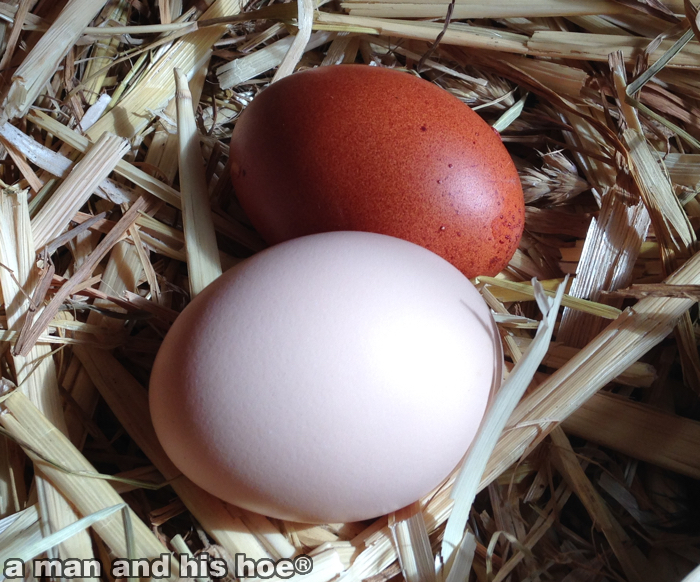
Gathering and putting together the eggs for Slough Food each week is never dull. Is Cognac going to lay one of her special dark eggs? What about Svenda and her lovely tan eggs?
I usually deliver two dozen eggs to Slough Food on Friday afternoons. If you visit Edison on Saturday, chances are good you can pick some up. You’ll always know how fresh they are. The date they are laid is on the cartons, and each egg is dated too.
